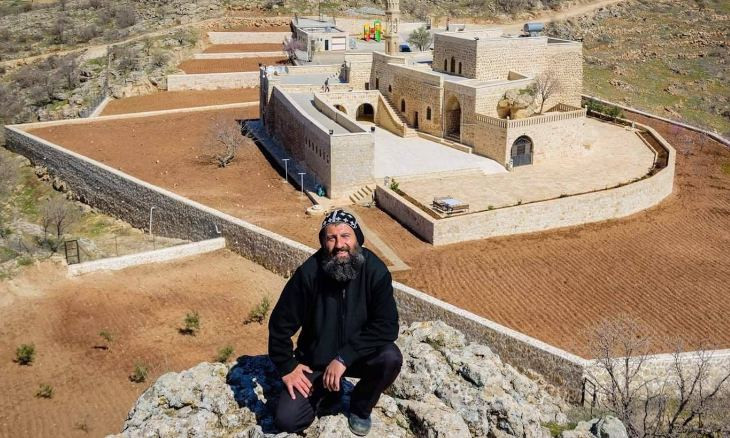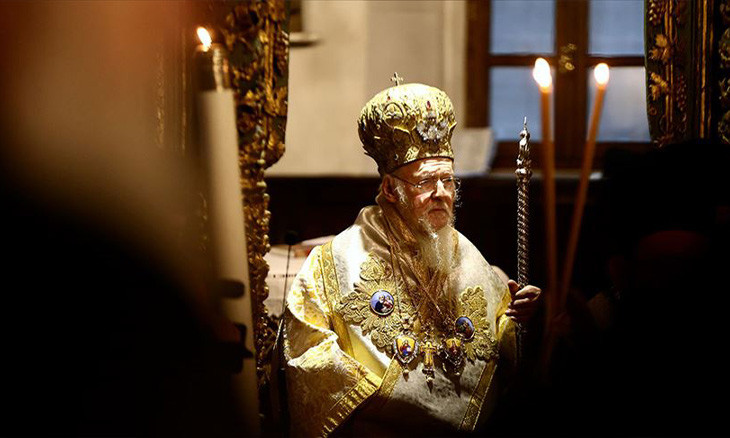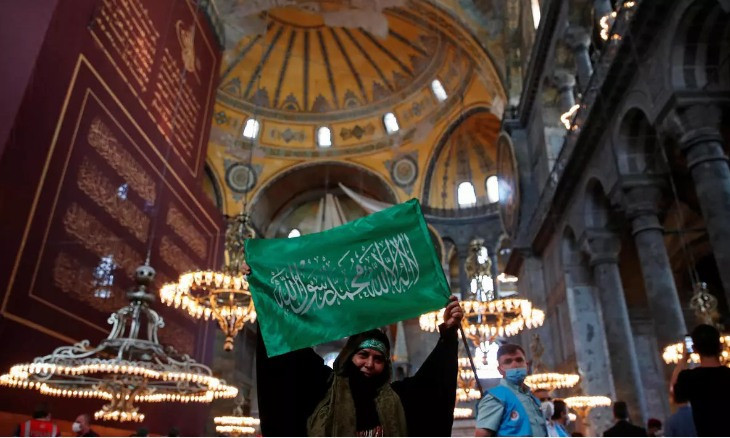US commission finds religious freedom conditions in Turkey on a 'troubling trajectory'
An independent United States’ commission has found religious freedom conditions in Turkey to be at a “troubling trajectory,” recommending the U.S. State Department to include the country on the Special Watch List. Ankara “made little to no effort to address many longstanding religious freedom issues and it ignored the continued targeting and vandalization of religious minority properties throughout the country,” the US Commission on International Religious Freedom said in its annual report.
Duvar English
A new annual report for 2021 by the United States Commission on International Religious Freedom has found religious freedom conditions in Turkey to be at a “troubling trajectory,” expressing concern over Ankara's move to convert the famous Hagia Sophia into a mosque last year.
The US Commission on International Religious Freedom is an independent government panel that gives recommendations to presidential administrations and Congress.
The report released on April 21 said that the Turkish government's move was denounced as “divisive and hostile to Turkey’s religious minorities.”
The report emphasized that Ankara did not stop limiting itself to Hagia Sophia, but also took a similar step concerning another former church, the Chora Museum.
“The government furthermore made little to no effort to address many longstanding religious freedom issues and it ignored the continued targeting and vandalization of religious minority properties throughout the country,” the report said.
The report highlighted that the ruling Justice and Development Party (AKP) and its coalition partner Nationalist Movement Party (MHP) rejected efforts to recognize Alevi gathering houses (cemevleri) as places of worship.
The Turkish government “declined to resolve other religious freedom concerns for Alevis and other communities, such as their objection to compulsory religious courses and other educational policies,” it said.
“Many religious minorities continued to feel threatened in connection with incidents perpetrated by nonstate actors or due to direct pressure from the state. Alevi, Armenian, and Protestant communities and organizations reported receiving death threats, whereas Jews described an increase in antisemitism largely linked to the COVID-19 pandemic.”
The report also touched upon the trial of Syriac Orthodox priest Sefer Bileçen (aka Father Aho) who was sentenced to jail for providing food and water to Kurdistan Workers’ Party (PKK) members.
“Throughout the year, authorities brought politically motivated charges of blasphemy against individuals and groups, while others in official positions utilized rhetoric characterized as hate speech that denigrated nonreligious individuals and members of the lesbian, gay, bisexual, transgender, and intersex (LGBTI) community,” it said.
The report said that the Turkish government regularly fails to prevent or punish the vandalism of religious sites, including places of worship and cemeteries.
“In January, unknown individuals broke into the Pir Sultan cemevi in Istanbul and graffitied the interior with threatening messages. In May, an individual attempted to set fire to an Armenian church for 'bringing the coronavirus,' and that same month, another person scaled the gate of another Armenian church and tore down its cross,” it said.
The report recommended the U.S. government to exert pressure on Turkey and include the country on the U.S. Department of State’s "Special Watch List" for religious freedom violations.

 Turkish court sentences Assyrian priest to two years in jail on terrorism chargesHuman Rights
Turkish court sentences Assyrian priest to two years in jail on terrorism chargesHuman Rights Greek Orthodox Istanbulites slam Turkish Presidency's video depicting minorities in comfortCulture
Greek Orthodox Istanbulites slam Turkish Presidency's video depicting minorities in comfortCulture Russia urges UNESCO to release restoration report on Hagia Sophia's conversion as soon as possibleDiplomacy
Russia urges UNESCO to release restoration report on Hagia Sophia's conversion as soon as possibleDiplomacy